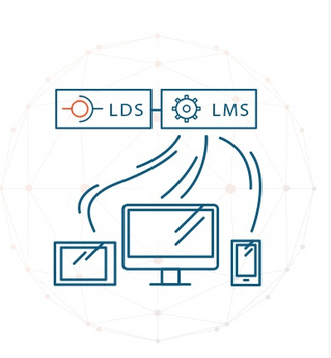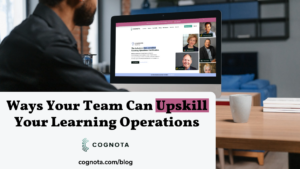Subject matter experts (SMEs) drive the content for the courses your organization needs. Since their job requirements usually don’t include teaching others, how can you encourage them to commit to your projects so everyone can be successful?
SMEs are busy people. They may be heads of engineering, technology, sales, marketing, finance, accounting, human resources, operations, or administration. If they’re considered experts, most likely they’ve been in their careers for a long time and have acquired substantial knowledge in their respective fields.
But chances are, they are not paid or bonused to create courses for the learning and development team. As such, they might greet a request to build courses with indifference, a quick ‘No’ — or worse.

So as an L&D leader, how do you corral the SME into distilling his or her expertise into courses for your organization?
Christopher Pappas of industry portal eLearning Industry offers some suggestions about working with L&D’s “ultimate frenemy.”
“A good start is half the battle, so make clear from the beginning that while you appreciate your SubjectMatter Experts’ contribution, your roles are equally important,” explains Pappas. “They provide the material, and you craft it in order to create effective and meaningful eLearning experiences together.”
Pappas advises L&D leaders to nurture the relationship, getting SMEs heavily involved but nonetheless facilitating the process for them, such as offering to use templates instead of existing PowerPoints, providing them with examples of good eLearning, and sending feedback.
Will the SME be a live presenter, or serve as the facilitator in recorded or streaming video instruction? Presentation could itself be somewhat of a wild card, as the expert may not necessarily be the most compelling speaker. We’ve all experienced this. In college, we were thrilled to grab a spot in a class taught by a celebrated professor or scholar, only to be hugely disappointed to learn that the professor was a terrible instructor. Later on, in our careers, we’d attend industry conferences, and get excited at the start of a session led by a well-known, respected professional in our industry, only to quickly discover that the speaker was a total bore.
Stay true to instructional design principles while speeding up the course design process.
As such, a challenge of working with Subject Matter Experts is to ensure that the content is not only relevant and useful but also engaging for learners.
Some SMEs shy away from participating in course building because they believe that they are not familiar with instructional design models, cannot understand learning objectives, or feel too close to the subject matter to truly understand what learners need. They may give you push back, claiming that they are not experts in developing learning materials.
But this is where you step in and provide guidance, since developing learning shouldn’t be long and painful. Tools and resources exist for you to take any existing content — presentations, videos, or articles, for example — and add it to content you can capture, such as video, to create extremely compelling courses that are based on validated learning methodologies.
Eventually, if not currently, SMEs will have learning development in their job requirements, and further, may have a certain number of hours allocated to working with L&D to build courses within their organizations.
Another unintended outcome is the SME actually becoming smarter. Going through the process of having to explain something to others can actually challenge them to be better at what they do. As Albert Einstein once said, “If you can’t explain it simply, you don’t understand it well enough.”





